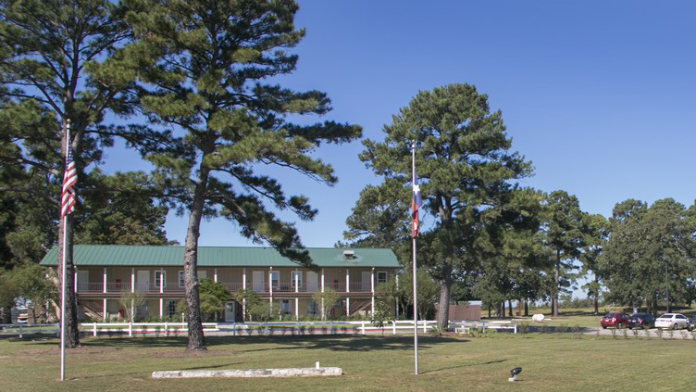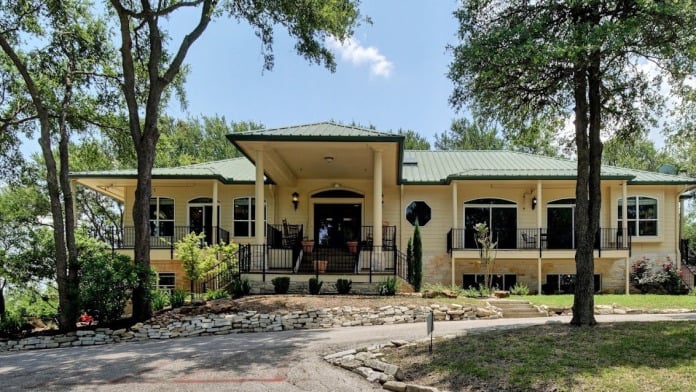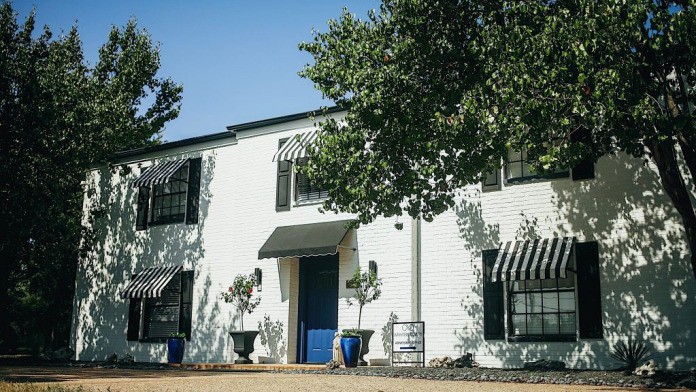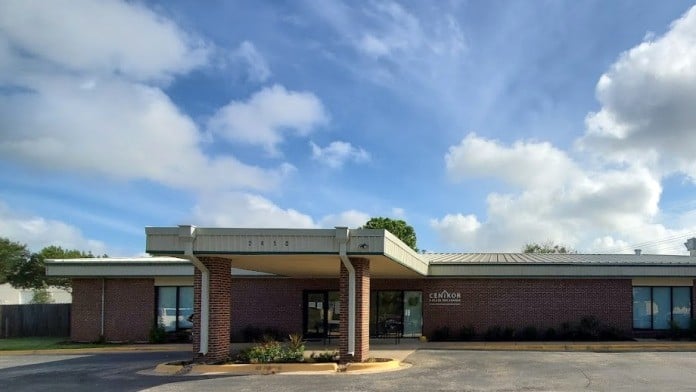About The Last Resort Recovery Center
Before attending the residential treatment program, you’ll likely need to detox. At this detox center, the detoxification process is conducted in a home away from home setting with 24/7 medical care. Medications are available to help manage withdrawal and cravings; these are administered by trained clinicians. The length of detox can vary depending on an individual’s substance abuse history, but most complete this program in five to seven days.
The inpatient residential treatment program at The Last Resort Recovery Center is best suited if you complete the detox program. Their residential program runs for between 45 and 90 days, depending on your needs. In addition, this specialized treatment program for drug and alcohol use includes group, individual, and family therapy. There’s also adventure therapy, horseback riding and caring for horses, and how to control your emotions and manage PTSD and grief.
Once you finish the inpatient program you can downscale to an outpatient setting. This can include partial hospitalization or intensive outpatient treatment. In addition to the individual and group therapy, you’ll learn new life skills and assistance as you prepare to go back to your community. Transportation is also available to and from the center.
Facility Overview
Latest Reviews
Rehab Score
Gallery

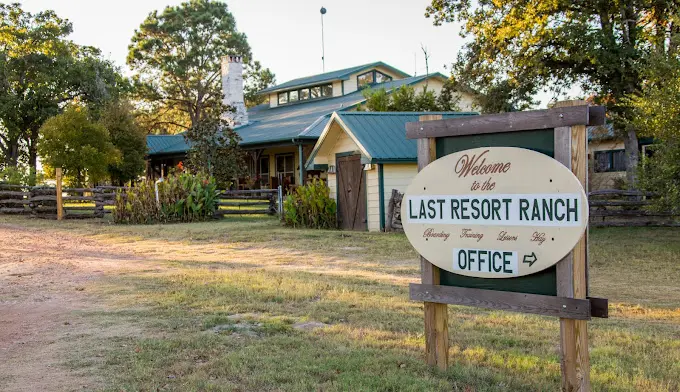

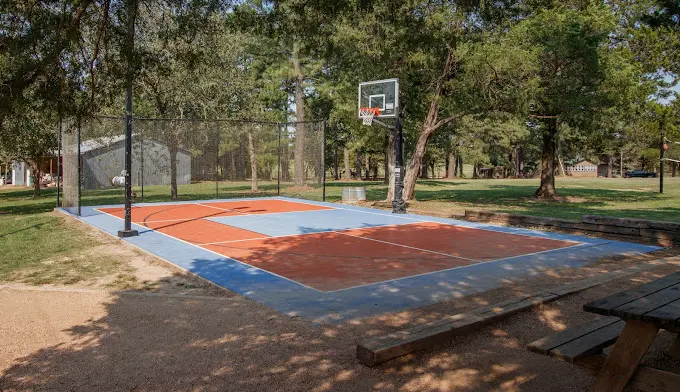



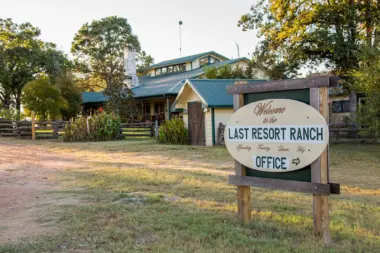

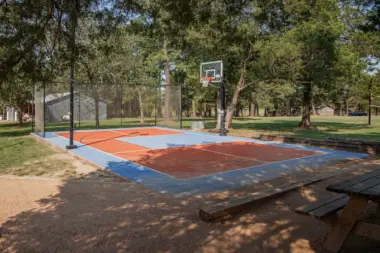


Other Forms of Payment
Self-pay involves paying for treatment out of your own pocket. You can use savings or credit, get a personal loan, or receive help from family and friends to fund your treatment. If you don't have insurance or your insurance plan doesn't cover a specific program, self-pay can help ensure you still get the care you need.
Private insurance refers to any kind of healthcare coverage that isn't from the state or federal government. This includes individual and family plans offered by an employer or purchased from the Insurance Marketplace. Every plan will have different requirements and out of pocket costs so be sure to get the full details before you start treatment.
Medicaid is a state based program that helps lower-income individuals and families pay for healthcare. Medicaid covers addiction treatment so those enrolled can use their coverage to pay for rehab. When a program accepts Medicaid the client often pays very little or nothing out of their own pocket.
Medicare is a federal program that provides health insurance for those 65 and older. It also serves people under 65 with chronic and disabling health challenges. To use Medicare for addiction treatment you need to find a program that accepts Medicare and is in network with your plan. Out of pocket costs and preauthorization requirements vary, so always check with your provider.
Military members, veterans, and eligible dependents have access to specific insurance programs that help them get the care they need. TRICARE and VA insurance can help you access low cost or no cost addiction and mental health treatment. Programs that accept military insurance often have targeted treatment focused on the unique challenges military members, veterans, and their families face.
Addiction Treatments
Levels of Care
While evidence-based treatment is at the core of what they do at The Last Resort, their team also embraces the tried-and-true methods of the 12 Step’s original program. While 12-step programs continue to be used at treatment facilities across the country, the watered-down approach practiced by many leaves the traditional program ineffective for many in recovery. The Last Resort is working hard to renew the original pioneer 12-step model of recovery.
The Last Resort provides men a time away in a safe, supportive, and structured environment. Its retreat-like, country setting affords a welcome alternative to hospital-like alcohol and drug treatment facilities that can often feel sterile and unnecessarily restrictive. When a man is ready to change, Nature often plays an important role in his healing process. And from his very first day at the Last Resort, a man can often feel this power.
The Last Resort encourages men to remain in some sort of continuing care for an additional year following their residential stay. Through transitional living facilities, sober houses and screened recovery coaches, their men receive the support they need when they leave their care. Continued care can help avoid relapse as men maneuver through the first several months of early recovery. Evidence-based care often makes the difference between a man that successfully navigate the recovery process and one that experiences relapse after leaving treatment. Every man successfully completing his course of care with them is encouraged to stay connected to through LRAA, their growing Alumni Association. With weekly Alumni accountability groups your loved one will stay connected with The Last Resort after his 90-day stay at The Last Resort.
Drug and alcohol addiction often takes a heavy toll on one's body. Over time, a physical dependence can develop, meaning the body physiologically needs the substance to function. Detox is the process of removing drugs and/or alcohol from the body, a process that can be lethal if mismanaged. Medical detox is done by licensed medical professionals who monitor vital signs and keep you safe, healthy, and as comfortable as possible as you go through detox and withdrawal.
Their interventionists are certified clinical interventionists, and licensed alcohol and drug counselors. The Clarity intervention process is easily coordinated with an organized approach. They start with an initial over the phone consultation. The interventionist begins working with the family right away. They use a very concise approach to help guide the family through the intervention. There will be pre-intervention counseling with the family team, and the intervention process will begin. Their interventionists will escort loved ones to the facility of choice, and work directly with the family following the intervention
After completing some form of inpatient care, many clients transition or step down to an outpatient rehab, while some choose to transition from detox directly into outpatient care. High-intensity outpatient programming, including partial hospitalization (PHP) and intensive outpatient (IOP) is widely available for clients in early recovery, those leaving detox, and those at an elevated relapse risk. Clients in outpatient care generally engage in robust addiction counseling and recovery education, and some also receive medication assisted treatment (MAT).
Intensive outpatient programs offer high-level care for clients as an increased risk of relapse, including those in early recovery, those with a strong history of relapse, and those experiencing a crisis. Intensive outpatient treatment typically requires clients to engage in nine to 20 hours of care weekly, with treatment modalities that combine psychotherapy and recovery education, and holistic therapies, such as acupuncture and animal therapy. Medication assisted treatment (MAT) is also common in alcohol and/or opioid recovery.
Commonly known as "day treatment," a partial hospitalization program (PHP) offers intensive addiction treatment while allowing you to return home each day. It can serve as an alternative to inpatient hospitalization or as a step-down option. Depending on your needs, PHP treatment typically averages 90 days with a weekly requirement of 6-8 hours a day. PHP treatment offers a variety of therapeutic interventions such as individual counseling, group therapy, and psychoeducation. Oftentimes PHP treatment can be fully covered by insurance.
Treatments
The goal of treatment for alcoholism is abstinence. Those with poor social support, poor motivation, or psychiatric disorders tend to relapse within a few years of treatment. For these people, success is measured by longer periods of abstinence, reduced use of alcohol, better health, and improved social functioning. Recovery and Maintenance are usually based on 12 step programs and AA meetings.
During rehab in Texas, you'll deal with underlying issues that contribute to addiction. By addressing these challenges and learning healthy ways to cope with them, you'll develop strategies that help you live a drug-free lifestyle.
Many men come to them suffering from a variety of co-occurring disorders, such as depression or an anxiety disorder. The psychological symptoms of the mental illness may be secondary to the chemical addiction, which means that when the addiction is properly addressed, other symptoms may improve as well. Their onsite clinicians are highly qualified to identify issues associated with addiction and treat those disorders through therapy and medication. Providing a man with the right level of care when it is needed is another strength of the new recovery model utilized at The Last Resort.
A combined mental health and substance abuse rehab has the staff and resources available to handle individuals with both mental health and substance abuse issues. It can be challenging to determine where a specific symptom stems from (a mental health issue or an issue related to substance abuse), so mental health and substance abuse professionals are helpful in detangling symptoms and keeping treatment on track.
Opioid rehabs specialize in supporting those recovering from opioid addiction. They treat those suffering from addiction to illegal opioids like heroin, as well as prescription drugs like oxycodone. These centers typically combine both physical as well as mental and emotional support to help stop addiction. Physical support often includes medical detox and subsequent medical support (including medication), and mental support includes in-depth therapy to address the underlying causes of addiction.
Programs
Adult rehab programs include therapies tailored to each client's specific needs, goals, and recovery progress. They are tailored to the specific challenges adult clients may face, including family and work pressures and commitments. From inpatient and residential treatment to various levels of outpatient services, there are many options available. Some facilities also help adults work through co-occurring conditions, like anxiety, that can accompany addiction.
Young adulthood can be an exciting, yet difficult, time of transition. Individuals in their late teens to mid-20s face unique stressors related to school, jobs, families, and social circles, which can lead to a rise in substance use. Rehab centers with dedicated young adult programs will include activities and amenities that cater to this age group, with an emphasis on specialized counseling, peer socialization, and ongoing aftercare.
Recovery is most successful when clients feel accepted and validated by their peers and treatment providers. Facilities that offer LGBTQ-inclusive programming are committed to creating a safe space where everyone can grow and recover without fear of judgment or discrimination. They will have dedicated policies in place to create a safe and supportive environment that fosters free expression.
Serving in the military is both mentally and physically challenging, and can result in trauma that persists even after combat ends. Military programs are tailored to the specific and often complex needs of active duty personnel, veterans, and military families. Clients often access these programs through the U.S. Department of Veterans Affairs (VA).
Clinical Services
Animal therapy (aka pet therapy or animal-assisted therapy) can be very healing, as it allows patients to bond with animals, who give unconditional love. This is particularly useful for those who suffered trauma by the hands of people, who may be able to trust and form closer attachments to animals than humans at certain stages of rehabilitation.
Cognitive Behavioral Therapy (CBT) is a therapy modality that focuses on the relationship between one's thoughts, feelings, and behaviors. It is used to establish and allow for healthy responses to thoughts and feelings (instead of unhealthy responses, like using drugs or alcohol). CBT has been proven effective for recovering addicts of all kinds, and is used to strengthen a patient's own self-awareness and ability to self-regulate. CBT allows individuals to monitor their own emotional state, become more adept at communicating with others, and manage stress without needing to engage in substance abuse.
Dialectical Behavior Therapy (DBT) is a modified form of Cognitive Behavioral Therapy (CBT), a treatment designed to help people understand and ultimately affect the relationship between their thoughts, feelings, and behaviors. DBT is often used for individuals who struggle with self-harm behaviors, such as self-mutilation (cutting) and suicidal thoughts, urges, or attempts. It has been proven clinically effective for those who struggle with out-of-control emotions and mental health illnesses like Borderline Personality Disorder.
EquiSteps and Advanced Equine Rhythm are their trademark programs that are setting a new standard in Equine Assisted Therapy. The Last Resort has honed a unique methodology, unlike any other equine programs offered for drug and alcohol treatment centers. Their programs combine 12 step work with physically/emotionally safe experiences with horses and a sound theoretical approach informed by current neurobiology research of the addicted brain. For many clients struggling with issues of addiction, there is a need for more than traditional talk therapy. Their unique EAP program meets these needs.
Experiential therapy is a form of therapy in which clients are encouraged to surface and work through subconscious issues by engaging in real-time experiences. Experiential therapy departs from traditional talk therapy by involving the body, and having clients engage in activities, movements, and physical and emotional expression. This can involve role-play or using props (which can include other people). Experiential therapy can help people process trauma, memories, and emotion quickly, deeply, and in a lasting fashion, leading to substantial and impactful healing.
EMDR is a therapeutic modality originally developed to help process trauma. In an EMDR session, a patient is prompted to undergo eye movements that mimic those of REM sleep. This is accomplished by watching a therapist's finger move back and forth across, or following a bar of light. The goal is repetitive sets of eye movements that help the brain reprocess memory, which can significantly reduce the intensity of remembered traumatic incidents. Associated memories can heal simultaneously, leaving patients significantly calmer, more stable, and more emotionally relaxed.
At The Last Resort they know that supporting the family is just as important as supporting the individual struggling with addiction. That is why every family that comes to The Last Resort receives a customized Family Support Contract. This contract is developed over a period of 30-days just prior to a clients discharge and is a collaborative effort between the client, their family, and their discharge coordinator.
Fitness therapy blends exercise with psychotherapy for a fun, inspiring, and effective way of treating addiction and other issues. By incorporating movement into counseling sessions, clients become more empowered, motivated, and goal-oriented, all while strengthening their bodies and becoming more flexible. Fitness Therapy is usually used to complement a course of treatment (inpatient or outpatient) to make it even more successful. Increasing the connection between a patient’s mind and body helps both with healing as well as in creating new, healthy habits.
Group therapy is any therapeutic work that happens in a group (not one-on-one). There are a number of different group therapy modalities, including support groups, experiential therapy, psycho-education, and more. Group therapy involves treatment as well as processing interaction between group members.
In individual therapy, a patient meets one-on-one with a trained psychologist or counselor. Therapy is a pivotal part of effective substance abuse treatment, as it often covers root causes of addiction, including challenges faced by the patient in their social, family, and work/school life.
Motivational Interviewing (MI) is a clinical approach to helping people with substance abuse issues and other conditions shift behavior in positive ways. It is more goal-oriented than traditional psychotherapy, as MI counselors directly attempt to get clients to consider making behavioral change (rather than wait for them to come to conclusions themselves). Its primary purpose is to resolve ambivalence and help clients become able to make healthy choices freely.
Years of chemical abuse take a serious toll on the body. At The Last Resort, they believe proper nutrition can play a key role in aiding a man’s recovery from addiction. Through carefully planned, nutritious menus, they help men appreciate the hidden role nutrition can play in controlling their mood swings and aiding them in the recovery process.
Amenities
-
Private Setting
-
Yoga Studio
-
Hiking
-
Residential Setting
Staff & Accreditations
Staff

Becky Babb
CEO

Corbin Bigheart
President
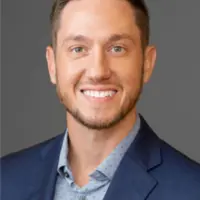
Mike Smeltzer
Executive Director
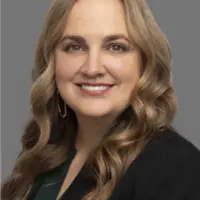
Kim Harrison
CFO

Maria Garza
Director of Nursing
Accreditations

The Commission on Accreditation of Rehabilitation Facilities (CARF) is a non-profit organization that specifically accredits rehab organizations. Founded in 1966, CARF's, mission is to help service providers like rehab facilities maintain high standards of care.
CARF Accreditation: Yes
Accreditation Number: 271546

The National Association of Addiction Treatment Providers (NAATP) is a professional association that represents organizations in the field of addiction services. Founded in 1978, NAATP's mission is to advance addiction services and ensure that high-quality addiction treatment is available and accessible.
NAATP Member: Yes
Member ID: 569

State Licenses are permits issued by government agencies that allow rehab organizations to conduct business legally within a certain geographical area. Typically, the kind of program a rehab facility offers, along with its physical location, determines which licenses are required to operate legally.
State License: Texas
License Number: 3650
Contact Information
1620 Farm to Market 535
Suite D
Smithville, TX 78957

